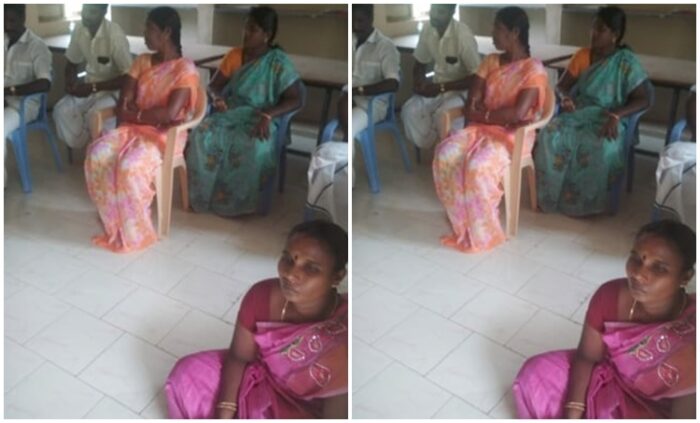Chennai: A photograph showing an elected woman panchayat leader sitting on the floor during a meeting she ought to preside over – while others sit on chairs – has sparked outrage in Tamil Nadu and exposed deeply entrenched discriminative practices in the southern state.

The District Collector in Tamil Nadu’s Cuddalore, where the incident took place, has suspended the panchayat’s secretary for failing to inform the authorities and has ordered a probe. The woman seen in the photograph that was widely circulated on social media is the President of the Therku Thittai village panchayat and belongs to the Adi Dravida community, a Scheduled Caste. She was elected to her post – a reserved seat – last year.
“Because of my caste the Vice President does not let me preside over meeting. He did not even let me hoist the flag. He made his father do it. Although I was cooperating with the upper castes all these months, it is going overboard now,” she said. The Vice President of, who is currently on the run, is to be arrested and charged under the SC/ST (Prevention of Atrocities) Act.
Despite laws banning untouchability and caste-based discrimination, these are still practiced across Tamil Nadu, with restrictions on cooking utensils and crockery (“upper castes” refuse to eat food prepared by the “lower castes” or use plates and glasses they use) and dressing among others. In many villages there are also designated areas for Scheduled Castes to live and they are not allowed wear footwear when they pass through areas where the “upper castes” live. In the past many have been caught on camera carrying slippers in their hands in those areas.
Until a decade ago three reserved village panchayats – Pappapatti, Keeripatti and Nattarmangalam in Madurai district – had no Scheduled Caste candidates contesting out of fear of the dominant castes’ backlash. Those who dared to contest and win were forced to resign, making a mockery of the electoral reservation system to politically empower men and women from oppressed communities. Women from these communities continue to be sexually abused.


Comments are closed.